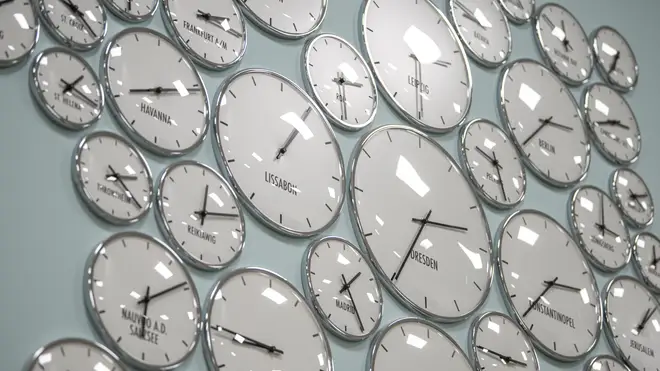
Shelagh Fogarty 1pm - 4pm
25 March 2021, 16:39 | Updated: 25 March 2021, 16:42

Clocks will be changing for British Summer Time this Sunday meaning we will be losing an hour's sleep.
It's that time of the year again to decide whether or not to change the clock in your car, on your oven or in the living room.
Most digital clocks, watches and phones will update automatically without needing any effort on your behalf.
However, the battery-run clock on the wall in the kitchen might need changing, unless you're one of those people who is happy to read the time incorrectly for the next six months.
It also means it's time to pull out that helpful American expression "spring forward, fall back" to remind your friends and family what the rule is when changing their watches.
So do the clocks go forwards or backwards this weekend? And why do the clocks change?

An alarm clock you'd actually want to wake up to
The clocks go forward by one hour this weekend for British Summer Time (BST), which is also known as Daylight Saving Time (DST).
For those hoping for a lie-in, it unfortunately means that you lose an hour of sleep this weekend.
However, you can look forward to getting that extra hour's kip back when the clocks reset by an hour later in the year to what is known as Greenwich Mean Time (GMT).
In the UK, the clocks go forward an hour at 1am on the last Sunday in March, which will be on 28 March this year.
This means at 1am on Sunday, you should move your clock (if it does not change automatically) forward to 2am (if you're awake).
Clocks will then go back one hour at 2am on the final Sunday in October, which will be on 31 October this year.

The clocks go forward for the summer (BST) so that there is more daylight in the evenings and less in the mornings.
Time was standardised in the UK in the late 19th century, largely thanks to the growth of the railway system, with GMT being adopted as a legal standard in 1880.
But in the middle of the First World War, the Summer Time Act 1916 was introduced.
This was in response to Germany moving its clocks forwards in a bid to save fuel for the conflict by reducing the need for lighting during longer, brighter evenings.
On Wednesday, Boris Johnson indicated it was "unlikely" he will decide to scrap BST.
Asked at the Liaison Committee whether Britain would follow the European Union in scrapping DST, the prime minister said: "I will have a look at the suggestion... but it seems unlikely to me."